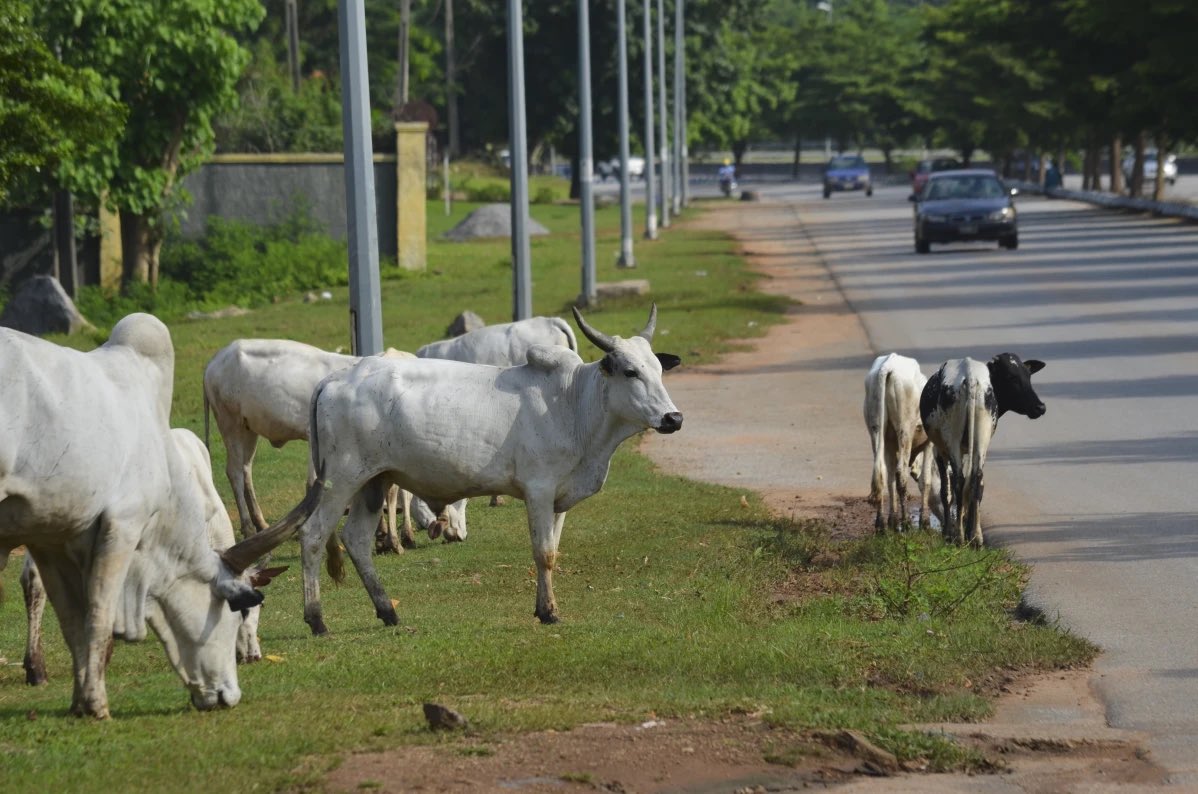
Federal Government Shuts Down Open Grazing Nationwide as Nigeria Enters a New Era of Land-Use Reform

Nigeria has officially entered a new era of land-use policy as the Federal Government announced a nationwide ban on open grazing, a move that signals one of the most sweeping agricultural and security reforms in recent years. The decision, confirmed on Tuesday, marks a turning point in the long and painful history of violent clashes between farmers and herders — a conflict that has devastated communities, wiped out livelihoods, and fueled insecurity across multiple states. With this landmark action, the government says it is drawing a clear line to protect lives, restore order, and modernize livestock management systems.
The announcement sent immediate ripples across the country, from rural farming belts to urban centers where policymakers and ordinary citizens alike have debated the contentious issue for years. For many Nigerians, this policy is long overdue. The farmer–herder crisis has escalated sharply over the last decade, with thousands killed and millions displaced as competition for land and water resources intensified. Entire villages in central, northwestern, and southern states have suffered repeated attacks linked to open grazing routes, often leaving behind scenes of burnt farmlands, destroyed structures, and mass displacement. The Federal Government’s new directive aims to break this cycle by halting the free movement of cattle across farmlands and communities.
According to officials, the ban is part of a broader strategy to adopt ranching as the new national standard for livestock rearing. Government officials say ranching is not only safer but also more economically viable, promising better yields, improved livestock health, and reduced pressure on already strained agricultural land. But the path to full implementation will not be without challenges, as herders accustomed to traditional grazing methods face a massive shift in lifestyle and operational practices. The government emphasized that its priority is not to punish herders but to protect both sides of the conflict while steering the livestock industry toward a sustainable future.
Reactions to the policy poured in immediately, reflecting a nation deeply divided but equally desperate for a lasting solution. Farmers’ associations expressed relief, calling the decision “a victory for food security.” Many said they have struggled to cultivate their lands out of fear, as roaming cattle often destroy crops in minutes, wiping out what took months to grow. For them, the ban represents hope — a chance to reclaim farmlands, restart agricultural activities, and sustain their communities without the constant anxiety of surprise incursions.
On the other side, several herders’ unions expressed concern, arguing that the government must provide clear guidelines and adequate support to ease the transition. They warned that without sufficient ranching facilities, job losses and dislocation within pastoralist communities could fuel fresh tensions. Some herder leaders insisted that grazing routes existed long before modern settlements expanded, and that a sudden ban without compensation could disrupt their way of life. The Federal Government responded by promising that a national livestock development plan is underway, complete with incentives for ranch development, training programs, and infrastructure to support the new system.
Across the political space, responses varied, with state governors largely supporting the move. Many state leaders have long struggled with the burden of managing communal conflicts tied to open grazing, and some had already implemented partial bans before the federal directive was announced. Security experts are also optimistic, describing the ban as a strategic step in dismantling armed groups that exploit grazing routes to move weapons, launch attacks, and evade authorities. They argue that regulating livestock movement will help curb rural banditry, kidnappings, and illegal arms circulation.
In rural communities where attacks have become disturbingly routine, the news was received with cautious optimism. Residents of states such as Benue, Plateau, Kaduna, and Ondo say they hope this is the beginning of a more peaceful phase. Many villagers recall nights spent hiding in bushes, families torn apart, and farmlands abandoned. The promise of a nationwide structure that eliminates open grazing feels, to some, like a light at the end of a very dark tunnel. However, their optimism is tempered by a widely shared fear: enforcement. Citizens worry about whether law enforcement agencies have the willpower, manpower, and neutrality to properly implement the ban without bias or corruption.
Economists weighed in on the broader impact, noting that while the adjustment period may be tough, the long-term benefits could be transformative. Nigeria’s agricultural sector, which has battled low productivity, frequent disruptions, and rising food prices, may finally see growth once farmlands become safe again. The livestock industry, too, could become more profitable if ranching becomes standardized, giving room for better breeding, disease control, and export potential. However, the cost of establishing ranches nationwide remains a significant concern, especially for small-scale herders who lack savings or access to credit facilities.
Civil society groups have urged the government to accompany the policy with genuine dialogue, transparency, and fairness to avoid alienating pastoralist communities. They caution that a ban without solid alternatives could create underground livestock movements or trigger new conflicts if not carefully managed. Many have called for the government to begin sensitization campaigns across states to help herders understand the long-term value of ranching and prepare them for the transition.
In the days following the announcement, social media platforms exploded with debates, hashtags, and emotional testimonies from victims of past violence. For some, the ban is seen as a historic win that will save lives and restore dignity to communities scarred by years of conflict. For others, it reflects a country still struggling to balance tradition with modernity. Pastoralism has deep cultural significance among several ethnic groups, and abruptly shifting away from it will require patience, empathy, and deliberate policy design.
As Nigeria takes this bold step into a post–open grazing era, the success of the ban will hinge on practical execution. Experts agree that establishing well-equipped ranches, monitoring livestock movement, and providing support to herders will determine whether the policy becomes a landmark achievement or another unfulfilled promise. The Federal Government insists that it is prepared for the challenge and that the ban represents more than just a rule — it is a commitment to building a safer, more productive nation.
For now, Nigerians watch keenly as implementation begins. In a country often shaped by its conflicts, this policy may become the catalyst for long-awaited peace between farmers and herders. But only time will tell whether this decisive intervention marks an end to one of the country’s most persistent security crises or the beginning of a complex new chapter in Nigeria’s agricultural transformation.


